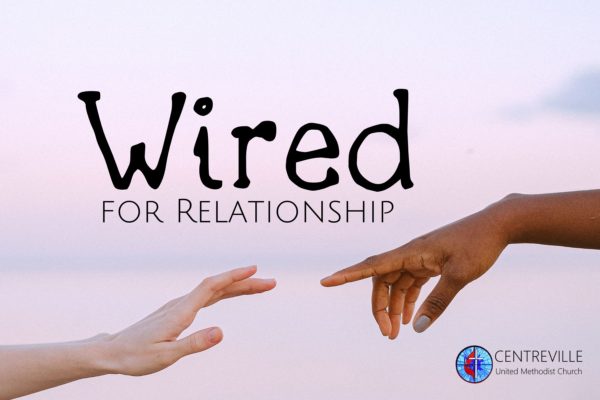Weekly Devotion with our Youth Director, Sean Gray
Recently, I’ve been reflecting a lot on how we, as humans, are inherently built for each other. Whether or not one identifies themselves as an introvert or an extrovert and no matter if we particularly enjoy being around other people or not, we are wired to be in relationship with other humans to some extent. This is not necessarily a profound observation – we all know that we, as humans, are social creatures.
Still, as a single, young, ministry professional who lives in a studio apartment I find myself alone quite often. As an extrovert, I used to dread the thought of not having people around me at all times. In recent years, however, I have come to appreciate this solitude most of the time. As great as having that time alone is, it has its disadvantages too. In my case, living with depression often makes me want to isolate myself from others in an attempt to hide what I’m feeling so as to not be a burden or bring those around me down. Sometimes, this leads me down a slippery slope where I begin to think that I don’t actually want or need other people around me. This of course does not help with the feelings of loneliness and isolation that depression causes.
In those times, I need to remind myself that we are not meant to go through life alone – that we are in fact built for each other. While I was in seminary, I had to do my best to grasp one of the most difficult parts of Christian theology: the Trinity. No matter how educated or well read one is on Trinitarian theology, it never really makes sense that three “persons” are simultaneously one God. Still, one aspect of understanding the trinity reminds me of how humans are meant for each other that is expressed in the Greek word perichoresis. This is a term used to describe the relationship between the three persons of the trinity where each person is so interconnected with another that they exist only within the other two. God the Father can only be understood through Jesus and the Holy Spirit, Jesus can only be understood through the Father and Holy Spirit, and the Spirit can only be understood through Jesus and the Father.
This internal relationship of the Trinity is thus also a model for how human communities are built on our dependance on one another. Though we clearly do not do this perfectly, our share in God’s image means we are also deeply connected to those who share in God’s image around us. As Jesus said in John 17:20-21, “I ask… on behalf of those who believe in me through their word, that they may be one. As you, Father, are in me and I am in you, may they also be in us, so that the world may believe that you have sent me.” If even the creator of the universe cannot exist without depending on others, what hope do I have except to be dependent on those around me too.

